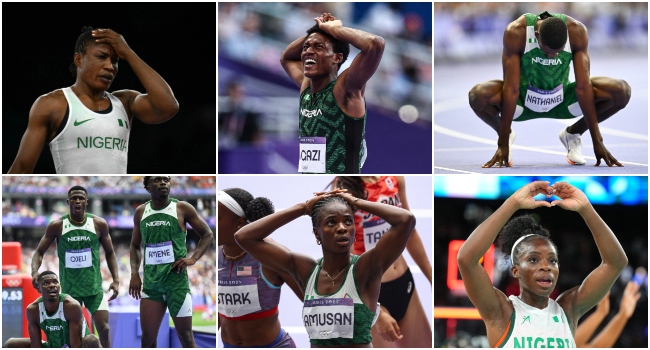IT has been over two weeks since the conclusion of the 33rd Olympiad in Paris and as nations worldwide evaluate their performances, Nigeria must confront the harsh reality of its underwhelming showing. For the eighth time, Team Nigeria posted its worst-ever returns at the Games, falling short of the aspirations and expectations of millions of Nigerians. Yet, amid the disappointment, there were glimmers of hope that suggest the potential for a brighter future if the necessary lessons are learned and appropriate actions are taken.
One of the few highlights of Nigeria’s Olympic campaign was the impressive performance of the women’s basketball team, D’Tigress. Their resilience and skill inspired the African continent and demonstrated that barriers can be broken, regardless of the challenges faced. The recognition of their 32-year-old coach, Rena Wakama, as the best coach at the Olympics, is a testament to the quality and promise within the team. This success should be celebrated and used as a blueprint for nurturing and developing other sports in Nigeria.
In addition to D’Tigress, some individual athletes showed promise despite the broader challenges. Nigeria made its debut in a new event, Cycling, through Ese Ukpeseraye. Although faced with obstacles, including issues with her bicycle for the Keirin event, she represented the country with determination. In canoeing, Ayomide Powei and Beauty Otuedo also performed admirably, while in athletics, 21-year-old Ezekiel Nathaniel reached the hurdles semifinals in his Olympics debut. Other athletes achieved personal or season’s bests, proving that Nigeria’s athletes have the talent and potential to compete with the best in the world.
However, these individual successes cannot mask the systemic issues that have plagued Nigerian sports for years. The National Olympic Committee (NOC) and other relevant federations, including the Athletics Federation of Nigeria (AFN), must take responsibility for the country’s poor performance. The prevalent “fire-brigade” approach to athlete preparation, where efforts are rushed and disorganized just before competitions, has consistently undermined Nigeria’s chances on the global stage. This lack of proper planning and preparation must be addressed if Nigeria is to achieve better results in future Olympics.
A critical factor in improving performance is ensuring that training funds are released on time and are adequately managed. The Sports Minister, Sen. Owah Enoh, made commendable strides during the Paris Olympics by ensuring that, for the first time, home-based athletes received training grants, a privilege previously reserved for foreign-based athletes. This initiative must be sustained and expanded to ensure that all athletes, regardless of their location, have the resources they need to prepare effectively for international competitions.
In addition to financial support, a comprehensive inquest into Nigeria’s Olympic performance is necessary. This inquiry should be thorough and objective, identifying the specific factors that contributed to the disappointing results. Any individuals or organizations found to be hindering progress must be held accountable. It is only through such rigorous examination and accountability that the systemic issues can be addressed and future failures averted.
The good news is that many of the athletes who competed in the 2024 Olympics are still young. With the right support and development, their experience in Paris can serve as a valuable learning opportunity that will prepare them for future success. However, this potential will only be realized if the Sports Ministry and other relevant federations put their houses in order. Proper planning, timely funding, and a commitment to athlete development are essential if Nigeria is to compete at the highest level in future Games.
As the World Youth Athletics Championships begin, there is an opportunity to apply the lessons learned from the Olympics and make strides towards a more successful future. Winning medals at this event would provide much-needed relief from the disappointment of the Paris Olympics and restore some confidence in Nigeria’s sports administration.


